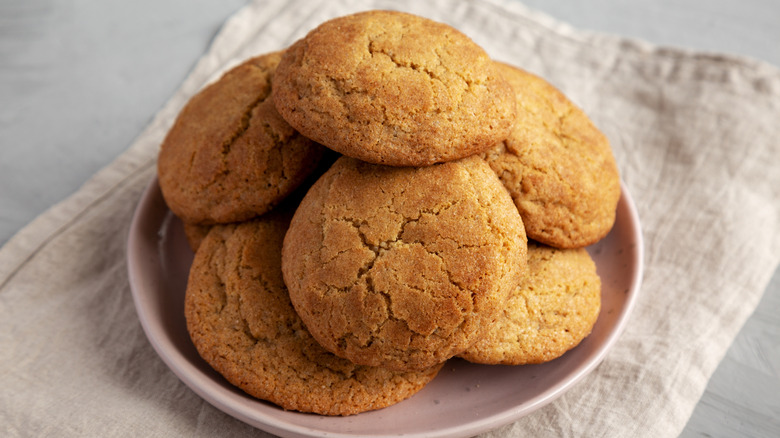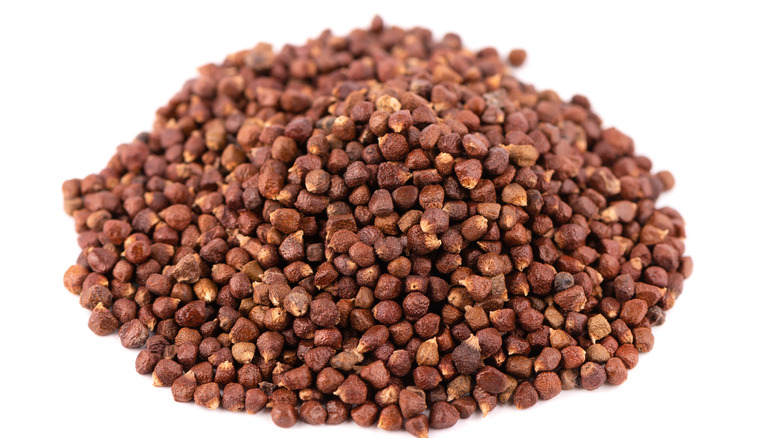The Uncommon, Citrusy Spice You Need To Sprinkle On Your Next Batch Of Cookies
Whether you're looking for new ways to make your oatmeal cookies irresistible or are simply hoping to experiment with uncommon spices that will impress your dinner guests, there's one fragrant little seed that is sure to take your baking up a notch: grains of paradise. Indigenous to parts of West Africa, this diminutive spice packs a complex and flavorful punch, boasting rich notes of citrus, cardamom, coriander, nutmeg, and ginger.
Warm and slightly peppery (despite not being an actual peppercorn), grains of paradise carry just enough gentle heat to complement any kind of spiced cookie, from oatmeal raisin to chewy pumpkin chocolate chip, and even Doris Greenspan's double ginger molasses cookies. All you need to do is grind the grains into a powder and use about a teaspoon to start out. To grind them, use a spice grinder or pop them into a pepper mill and mill away.
But there's no reason to only let cookies have all the fun. The nuanced notes of grains of paradise also lend themselves well to other delectable baked goods such as scratch-made cinnamon rolls, banana bread, moist cranberry carrot cake, and so much more.
What are grains of paradise?
Also known as paradise pepper or alligator pepper, grains of paradise are the fragrant seeds of the Aframomum melegueta plant, a close relative of ginger, cardamom, and turmeric. These conical, reddish-brown pods first earned the name grains of paradise during the Middle Ages when the spice was considered of high value. Due to their natural piquancy, there was a period during the 13th century when European spice traders would sell grains of paradise as a substitute for black pepper, as the seeds were easier to source from the nearby African continent than pepper was from India.
Sadly, grains of paradise fell out of common use in Western cooking once black pepper became more easily accessible across Europe. However, the complexities of the spice are still revered by many brewers and distillers around the world looking to bring bold flavor to well-crafted aquavit, beer, and gin –– Samuel Adams even uses grains of paradise in the recipe for its popular summer ale. Culinarily, grains of paradise are still a revered part of many African cuisine and are commonly used in spice blends, stews, and sauces.


